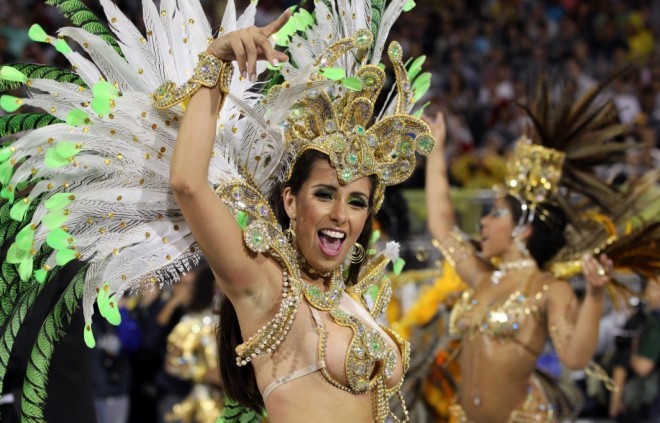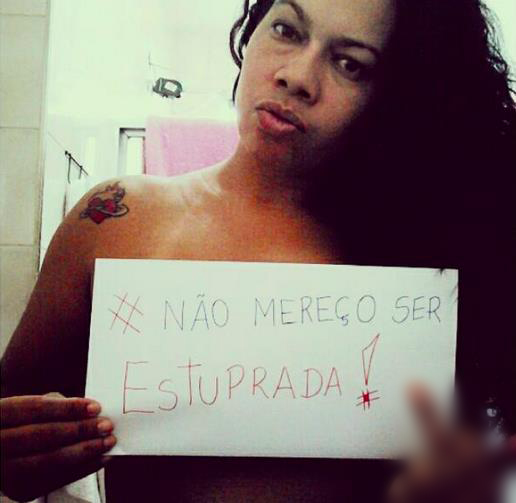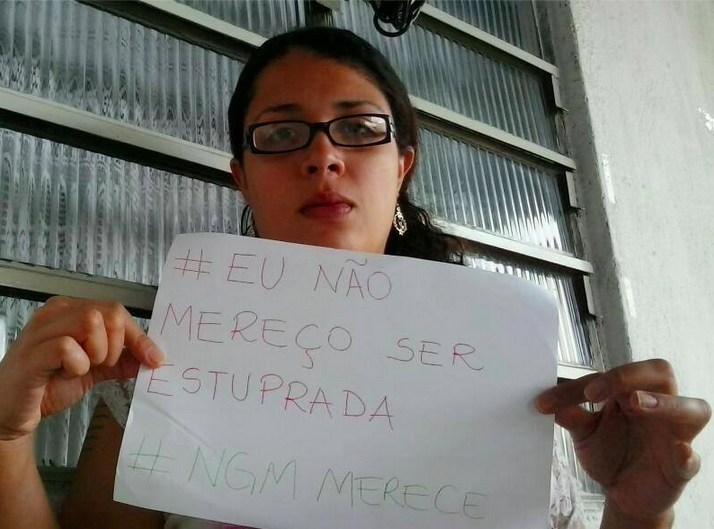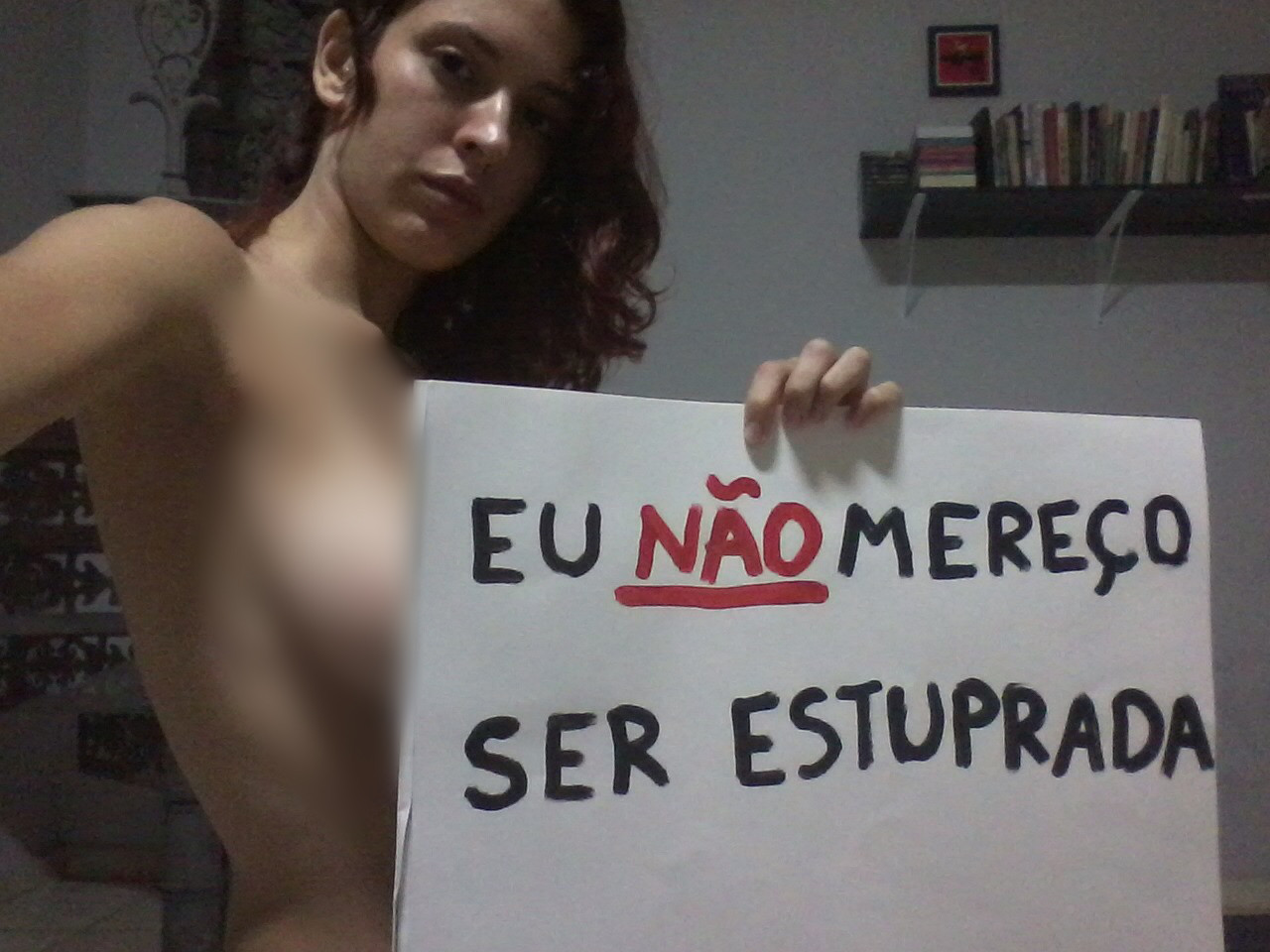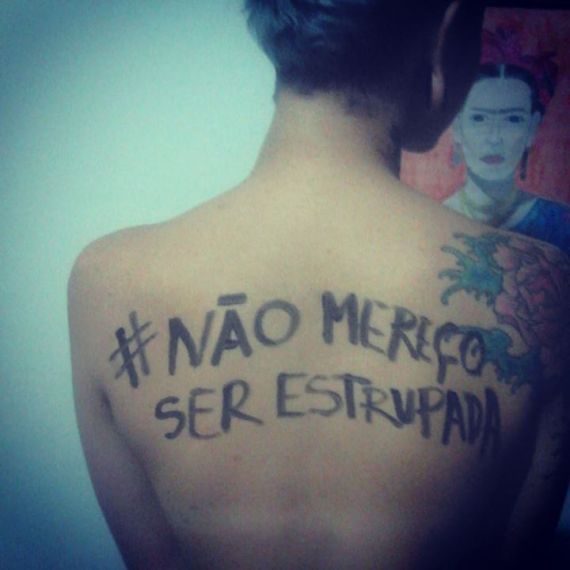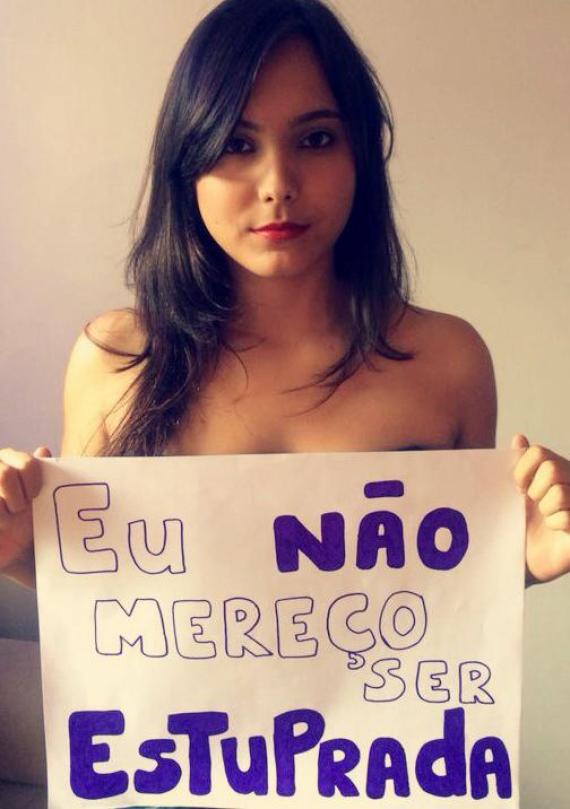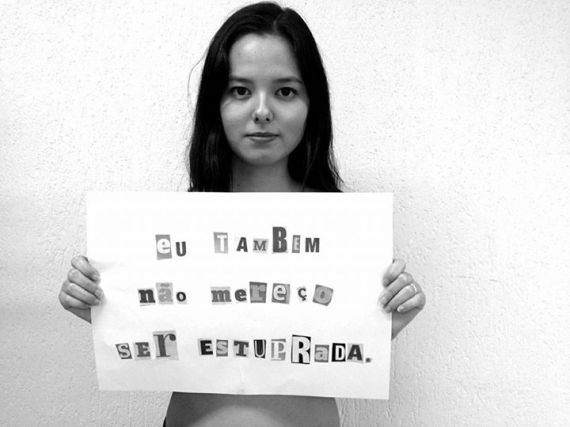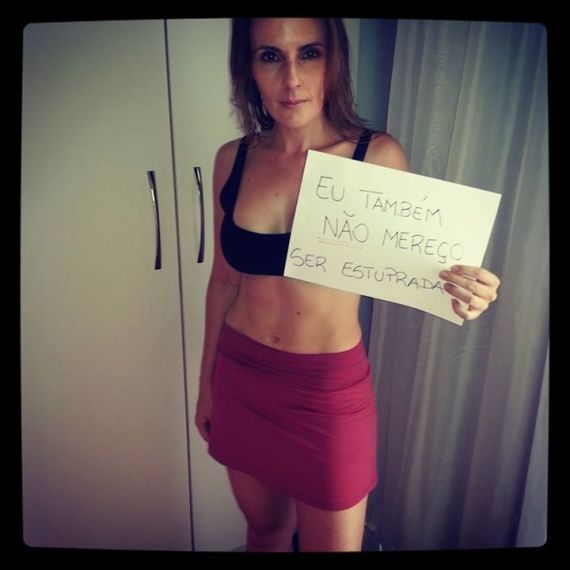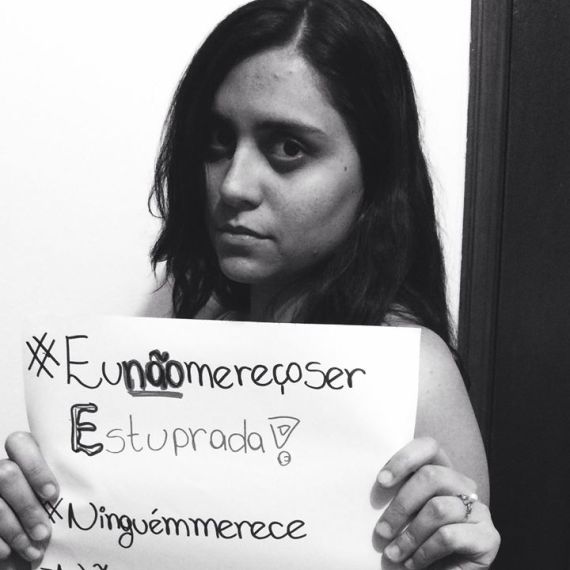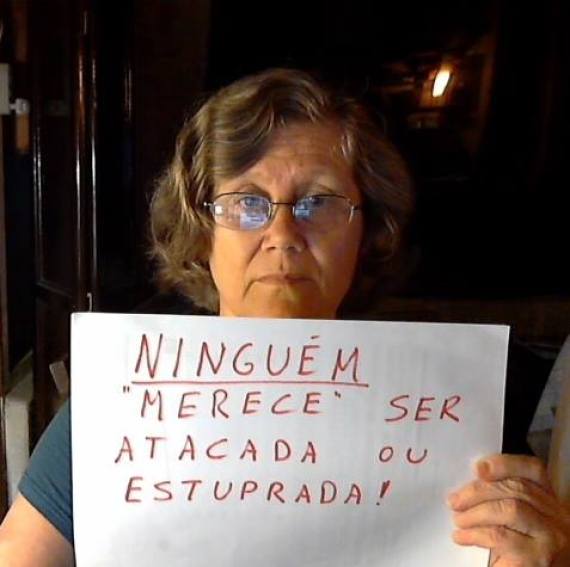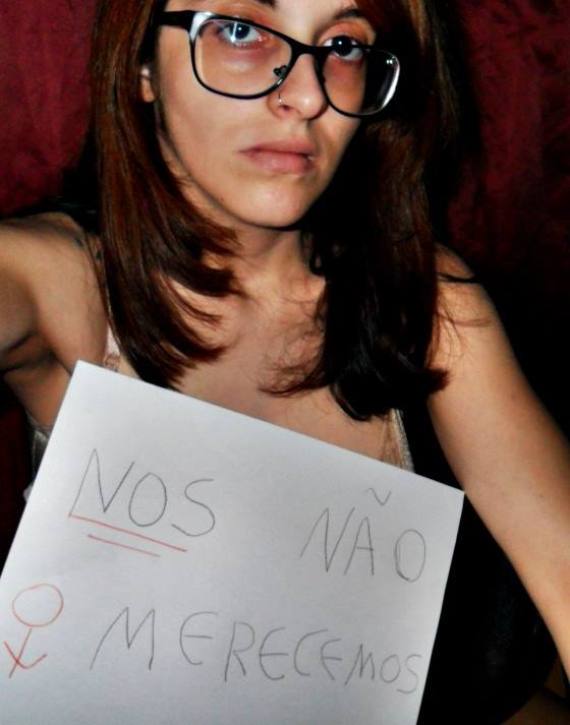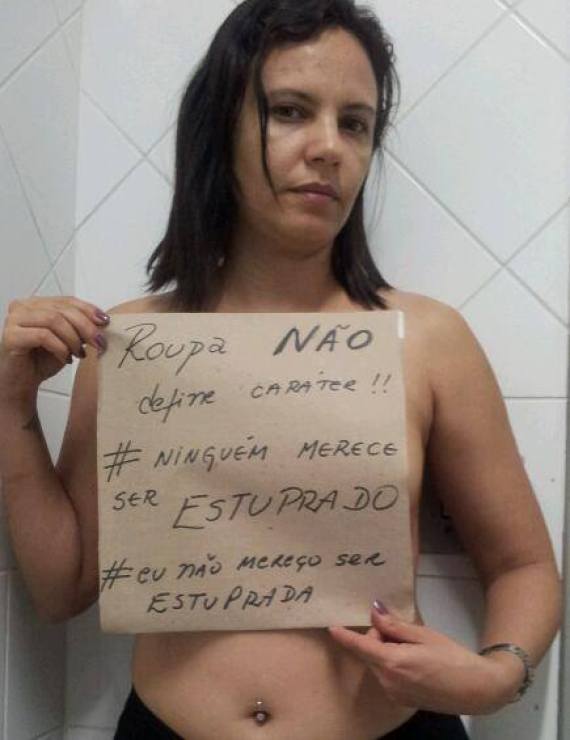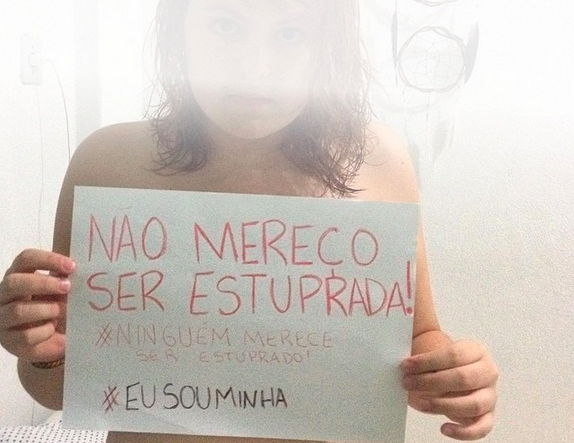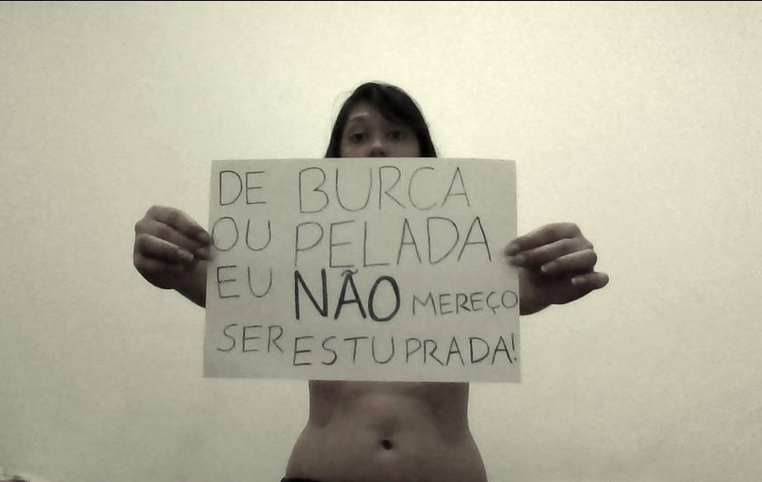[NSFW PHOTOS] Do You Think Women In Revealing Clothes Deserve To Be Raped?
There's been a huge backlash on social media in Brazil, after a new survey suggested 65% of Brazilians think women who dress in a revealing way "deserve to be attacked".
According to a recent study a startling 65.1% of Brazilians believe that "if dressed provocatively, women deserve to be attacked and raped"
Earlier this week, a study was released that said a startling 65.1 percent of Brazilians either partially or wholly believe that "if dressed provocatively, women deserve to be attacked and raped."
The study also revealed that 58.5% agreed that "if women knew how to behave, there would be less rape"
The study, conducted by Brazil's Institute for Applied Economic Research (IPEA), interviewed a reflective sample of 3,810 Brazilians via questionnaire across 212 cities between May and June of 2013.
Particularly shocking was that 66.5% of those surveyed were in fact, women, leading many to argue that the response proves how "widespread the toxic nature of rape culture is."
The statistics, however, explain why the female gender in Brazil have taken to social media with a clear message: #NãoMereçoSerEstuprada, which translates as #IDon'tDeserveToBeRaped
Brazilian women instantly reacted and took to social media and blogs to start a conversation about the study's revelations, keeping the story relevant and trending for more than 24 hours.
In protest, Brazilian journalist Nana Queiroz created a Facebook event and hashtag to confront the outrage. The hashtag is appropriately titled #NãoMereçoSerEstuprada, which translates to '#IDon'tDeserveToBeRaped.'
Nana posted a photo of herself naked, standing in front of the Brazilian congress building, covered only by her arms on which she had written the name of the new campaign
Image via imgur.comIn an organized call to action, on March 28 at 8 p.m. Brazilian local time, women were encouraged to share photos of themselves topless while covering their breasts with a sign that showcased the aforementioned hashtag. The Facebook event also specified that if women were uncomfortable posting topless photos, they should pose fully clothed.
The important thing, the journalist explained, was that "they, as women, demonstrate that no one can claim ownership over their bodies either than themselves."
wsj.comThe journalist said she was most surprised to find out that two-thirds of those questioned for the survey were women themselves
"These women are the biggest victims of sexism. They are so oppressed that they don't even feel that they have the right to have their own opinion," she says.
Carmita Abdo, the coordinator of the Sexuality Studies program at the University of Sao Paolo, told Brazilian newspaper Folha de S. Paulo that the results of the study are not surprising because Brazilian society still blames the victim in cases of abuse.
Some have questioned the methodology of the survey, and suggested more detailed research needs to be carried out before it can be considered conclusive
The page has attracted its expected share of trolls and misogynists. The journalist has also received several online rape threats.
“If you could see the number of threats I have received and angry messages from women saying I should be raped, you would believe the findings of the survey,” Queiroz told the Estado de S. Paulo newspaper. “I am very scared.”
Dilma Rousseff, Brazil's first female president, has issued a defense for the journalist
Rousseff sent a Twitter post Monday saying that journalist "Nana Queiroz deserves all my solidarity and respect." She adds that "No woman deserves to be a victim of violence, whether it be physical or in the form of intimidation."
go.comShe even tweeted about the survey - saying the country has "a long way to go on combating violence against women". "The results make clear the burden on law and public policy to fight violence against women," she added.
In another tweet, Rousseff said that “government and society must work together to tackle violence against women inside and outside the home.” In her final tweet on the subject, Rousseff called for “zero tolerance for violence against women.”
However, after releasing the study last week, the Institute for Applied Economic Research has apparently admitted an error in the study's results
The IPEA now claims that the true results showed a 26% complacency with this statement. The 'mix-up,' which prompted a massive online protest and a tweet from President Dilma Rousseff to journalist Nana Queiroz, is allegedly due to a swapping of results between two statements featured on the questionnaire.
Still, the protest has caused a sensation, with Ms. Queiroz becoming a national television sensation
The attention to the campaign won Ms. Queiroz a meeting with an aide to President Dilma Rousseff, Brazil's first female president, who is widely expected to run for re-election this year. Ms. Queiroz said the aide pledged to launch a marketing campaign to educate the public against attacks on women before Brazil hosts the World Cup in June, and to support the addition of women's issues into Brazil's education curriculum.
wsj.comWomen's rights advocates, who are supporting the campaign, are pressing on despite the corrected survey, arguing like Ms. Queiroz that the 26% figure is still high, as is gender inequality
"This is what happens when you have major inequality of gender in a society," said Bárbara Castro, a professor of social sciences at the Sociology and Politics Foundation in São Paulo. "There is a tendency of people behaving in a more macho way." Ms. Castro said women earn 70% of men's salaries on average compared with 76.5% in the U.S., according to the U.S. Census Bureau. Women also remain underrepresented in the workplace and in politics, despite outnumbering men in universities, she added.
wsj.comHere are some of the powerful images contributed to the online protest:
And this is our personal favourite: "Whether I'm in a burqa or naked, I don't deserve to be raped"
